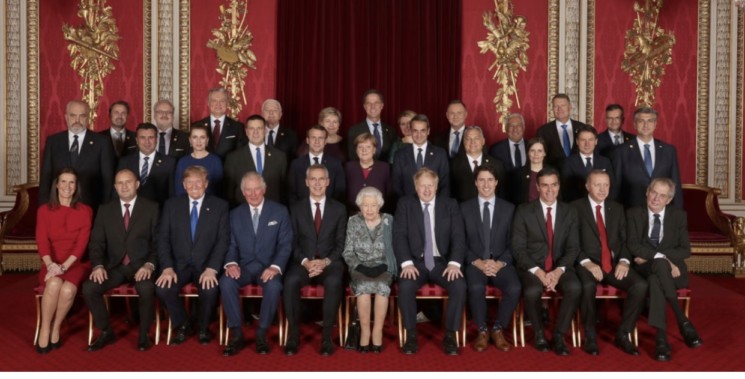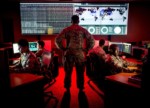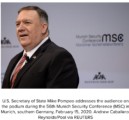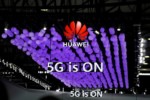The NATO leaders summit that ended Wednesday featured many of the debates that have come up before in the alliance's 70-year history, but there was also a newer topic on the agenda: China.
"That's a relatively new addition for the alliance, to start thinking about the security challenges that China poses to the alliance," Andrea Kendall-Taylor, director of the Center for a New American Security's Transatlantic Security Program, said on a conference call Monday.
"This is clearly something that's being led by the US, who has turned and is focusing on China as our most strategic challenge in the coming decades," Kendall-Taylor added. "So it's the Americans I think who will slowly kind of continue to push the issue, and we do see that there has been some response from the Europeans, but in the NATO context this is something that's a bit newer."
The London Declaration, issued by the heads of NATO member states after the summit, only mentioned China once, saying the alliance recognizes "China's growing influence and international policies present both opportunities and challenges that we need to address together as an Alliance."
But there are three specific issues where Beijing could create problems for to NATO and for European security.
1. NATO's mobility in Europe.

The alliance has been working for several years to improve its ability to reinforce and resupply across Europe, not only inland via roads, rivers, and railways but around the continent through ports that haven't seen much action since the Cold War.
NATO started going to more European ports around 2015 in order "to reestablish capabilities" and "to demonstrate that we could come [into Europe] at a variety of different places," retired Army Gen. Ben Hodges, who led the US Army in Europe between 2014 and 2017, told Business Insider in 2018.
"So as China continues to invest in things like ports and rail in Europe, that can complicate NATO mobility," Kendall-Taylor said Monday.
This investment has mainly come through the Belt and Road initiative, through which Beijing has provided trillions in loans and other assistance for development projects around the world. Much of the money that has flowed to Europe has gone to southern European countries.
As of early 2018, Chinese state firms controlled about one-tenth of all European port capacity, following acquisitions in Spain, Italy, and Greece, where the state-owned COSCO Holdings Company acquired a 67% stake in the port of Piraeus, Europe's largest passenger port.
"The ports issue is very present when you're talking about a realistic warfighting scenario," Gil Barndollar, a senior fellow at Defense Priorities, said on a conference call Tuesday.
2. Supply chains.

The presence of Chinese firms in the supply chains for defense components and other hardware with military applications is a concern in the US, and Europe is not immune.
"Certainly from a supply-chain security perspective [China] poses a challenge" to NATO, Kendall-Taylor said. "I think there's a concern about export controls and all of these other things ... to protect military technologies."
The Pentagon is compiling a list of companies with ties to the Chinese military as part of a Trump administration effort to protect US defense supply chains and to keep Beijing from obtaining sensitive technology.
The review is focused on semiconductors and integrated circuits, as both are vital for weapons like cruise missiles and fighter jets, according to The Financial Times. Export-control rules and federal acquisition regulations could then be used to reduce potential threats from China by banning government agencies from buying technology from companies on the list.
The US's own problems with supply chains may temper its approach to the issue with NATO.
"I haven't seen much ... in the public domain about the US pointing the finger at Europe with regards to supply chain components and defense manufacturing, especially the higher-end stuff like aerospace," Barndollar said. "We're really bad about that, whether you're looking at rare earth metals, looking at aviation components, even naval stuff. We've got to fix our own house before we can point any fingers at the Europeans."
3- 5G networks, and the role of Chinese firm Huawei in them, has been a major point of contention.

Huawei is thought to be ahead of other companies in supplying 5G technology and to be able to do it more cheaply.
"From a NATO perspective [5G technology] poses challenges for espionage reasons, and so NATO has a real interest in ensuring that they have a clean network of communications and that China then wouldn't at some point have an ability to disrupt NATO communications," Kendall-Taylor said, adding that the European Union has made progress on the issue.
A EU report issued in October, which did not directly name Huawei, warned that a "strong link" between a 5G supplier and a government "where there are no legislative or democratic checks and balances in place" could expose a country using that technology to espionage or cyberattacks.
Different countries have different views on Huawei and on 5G, and the company's ultimate role in European 5G networks is still being debated.
"I think this isn't an issue that NATO has the tools itself to tackle," Kendall-Taylor said. "It has interests ... but it will need the EU and the European Commission in particular to actually implement" the European response.
But Huawei's involvement "is definitely going to be a deal breaker with a lot of the intelligence relations, but especially signals intelligence sharing," Barndollar said. "It's also going to make it a lot harder for the US to collect and provide as much to a lot these countries. So that has a huge impact down the line."






Leave a Reply